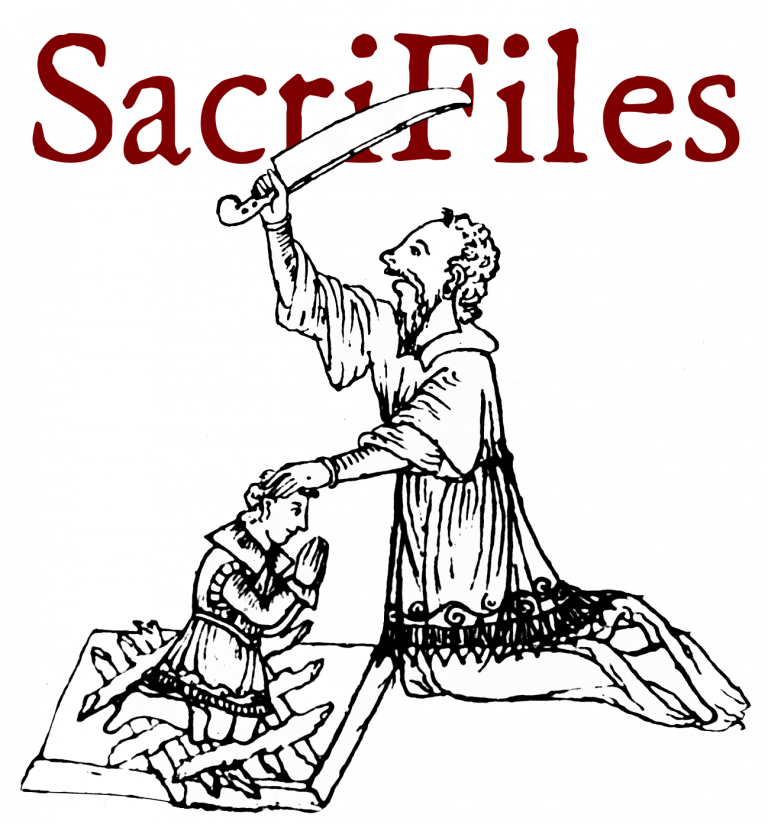Topic: 2. Sacrifice and religion: Comparisons, Antiquarians, Anthropology (16th-18th Century)
Religious sacrifices across various cultures and contexts sparked widespread interest in Early Modern Europe. As Christianity expanded into regions inhabited by "infidels" and "pagans", Europeans encountered a diverse array of sacrificial customs, ranging from the Sati rituals in India to the Aztec sacrifices in the Americas. This cross-cultural exposure captivated a wide audience, including theologians, philosophers, political thinkers, antiquarians, orientalists, missionaries, poets, artists, and even the general public. These encounters broadened the European understanding of sacrifice and led to a critical reassessment of classical and biblical sacrificial rites. This section includes:
- Sources: A selection of early modern printed materials, which include descriptions of the Americas, Asia, and Africa, alongside antiquarian and philological studies on religious sacrifice in classical antiquity and beyond. It also presents early modern works of ethnological observations and the first attempts to compare different sacrificial practices in various traditions and contexts, laying the groundwork for disciplines like the history of religions and anthropology.
- Iconographic Representations: A rich collection of images from the 16th to 18th centuries, illustrating a range of sacrificial rituals and practices as seen in different cultural and geographical contexts.
- Related Bibliography: An extensive bibliography spanning scholarly works from the 19th to 21st centuries, providing contemporary analyses and interpretations of these early studies and observations.
The Last Trial: On the Legends and Lore of the Command to Abraham to Offer Isaac as a Sacrifice: The Akedah
Philadelphia: The Jewish Publication Society of American, 1967.
The Rite of Child Sacrifice at Carthage
in: New Light on Ancient Carthage, pp. 1-12
Ann Arbor: University of Michigan Press, 1980.
The Daughter's Sacrifice and the Paternal Order in Racine's Iphigénie en Aulide
in: The Dynamics of Gender in Early Modern France: Women Writ, Women Writing, pp. 63-88
Furnham - Burlington: Ashgate, 2014.
Die griechischen Kultusaltertümer
München: C. H. Beck'sche Verlagsbuchhandlung, 1920.
Opfergebräuche der Griechen
Leipzig - Berlin: Teubner, 1910.
Die griechischen Sakralaltertümer und das Bühnenwesen der Griechen und Römer
München: C. H. Beck'sche Verlagsbuchhandlung, 1890.
Food, Sacrifice, and Sagehood in early China
New York: Cambridge University Press, 2011.
Food, Sacrifice, and Sagehood in Early China
Cambridge: Cambridge University Press, 2011.
Searching for Spirit: Shen and Sacrifice in Warring States and Han Philosophy and Ritual
in: Extrême-Orient Extrême-Occident, v. 29 (2007), issue : pp.23-54.
The Politics of Sacrifice in Early Greek Myth and Poetry
Cambridge: Cambridge University Press, 2017.
Yom Kippur in the Apocalyptic imaginaire and the Roots of Jesus' High Priesthood: Yom Kippur in Zechariah 3, 1 Enoch 10, 11 QMelkizedeq, Hebrews and the Apocalypse of Abraham 13
in: Transformations of the Inner Self in Ancient Religions, pp. 349-366
Leiden: Brill, 1999.
The Christian Exegesis of the Scapegoat between Jews and Pagans
in: Sacrifice in religious experience, pp. 207-232
Leiden: Brill, 2002.
An Unusual Group of Hero Stones: Commemorating Self-Sacrifice at Mallam, Andhra Pradesh
in: Ars Orientalis, v. 44 (), issue -: pp.61-84.
Jewish Dogs An Image and Its Interpreters
Stanford: Stanford University Press, 2006.
The Jewish Dog and Shehitah
in: Interfaces: A Journal of Medieval European Literatures, v. 5 (2018), issue -: pp.175-193.
On the comparison of blood in Greek and Israelite ritual
in: Hesed ve-Emet: Studies in Honor of Ernest S. Frerichs, pp. 179-188
Atlanta: Scholars Press, 1998.
in: Das Blut im Glauben und Aberglauben der Menschheit. Mit besonderer Berück-sichtigung der ‘Volksmedizin’ und des ‘jüdischen Blutritus’, pp.
Munich: -, 1900.
The Jew and Human Sacrifice: Human Blood and Jewish Ritual
London: Cope & Fenwick, 1909.
